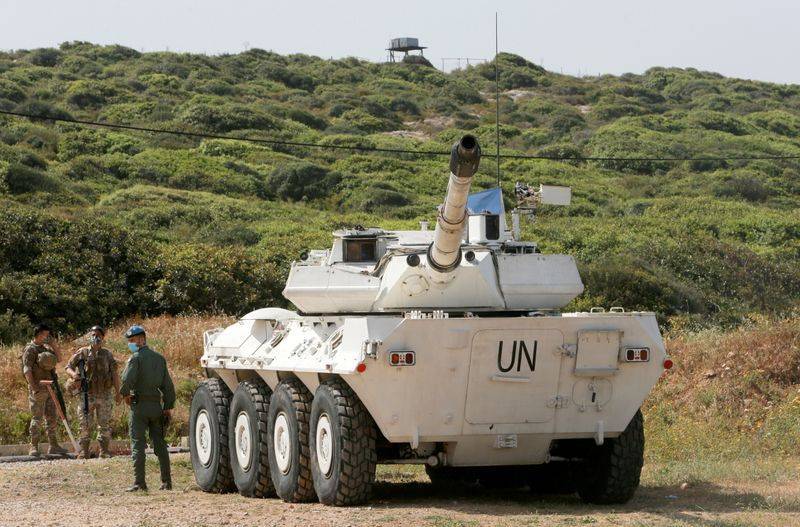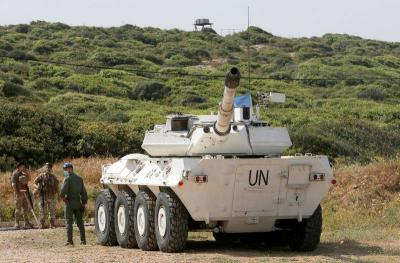International Resolution 1701 has returned to the forefront with the onset of skirmishes between Israel and Hezbollah in southern Lebanon on October 8, following the Gaza war, becoming one of the platforms through which the U.S. administration seeks to restore security conditions and possibly open the door for resolving border disputes, as reported by "Asharq Al-Awsat." With the resolution back in the spotlight, discussions have also resurfaced regarding the identity of Shebaa Farms, which remained under Israeli control after its withdrawal from southern Lebanon in 2000. The Israeli side considers it Syrian territory subject to Resolution 242, while Lebanon claims it under its sovereignty, asserting that Israel should withdraw based on Resolution 425. Resolution 1701 was issued in August 2006 after the July War that year, calling for a complete cessation of hostilities in Lebanon and ending a 33-day war between Israel and Hezbollah.
Ralph Ma'touq, a professor of international law, told "World Arab News Agency": "Israel considers it Syrian land based on the agreements reached in 1974 under what was known as the disengagement agreement, subject to United Nations forces to monitor the disengagement." He added: "In 1978, Resolution 425 was issued following the Israeli invasion of southern Lebanon, which called for the establishment of international peacekeeping forces (UNIFIL) and their deployment in the areas entered by Israel. These forces were deployed in Lebanese areas without reaching Shebaa Farms to prevent overlap in the operations of the two international forces (UNIFIL and the disengagement forces)."
He continued: "On this basis, the UN considered that Israel withdrew in May 2000 from all Lebanese territories, without mentioning Shebaa Farms, considering it Syrian land, while indicating that a bilateral agreement between Damascus and Beirut was needed to confirm its Lebanese identity." After the issuance of Resolution 1701, the UN Secretary-General requested to follow up on the border demarcation issue between Lebanon and Israel and resolve the Shebaa Farms matter.
Ma'touq noted that in 2008, the Lebanese government proposed placing Shebaa Farms under UN supervision, to be definitively resolved later through the border demarcation between Lebanon and Syria.
**Proving Identity**
Ma'touq believes there are "legal proofs and political stances affirming the Lebanese identity of Shebaa Farms," referring to some Lebanese documents that mention the farms, which number 13. He stated that the Lebanese state enforced its authority over the farms through judicial and administrative rulings, such as the affiliation of the farms to the Lebanese Hasbaya region, not the Syrian Quneitra province.
He also considers there are political statements from officials in the Syrian state affirming the farms' Lebanese identity, citing what he described as a statement from former UN Secretary-General Kofi Annan, who mentioned that former Syrian Foreign Minister Farouk al-Shara told him in a phone call in May 2000 that the Syrian state supports the Lebanese claim to Shebaa Farms. Moreover, that same year, Syrian President Bashar al-Assad declared it Lebanese territory, stating that the Lebanese people had the right to reclaim it from occupation.
Ma'touq believes that in international law, a public declaration and acknowledgment are sufficient to legally bind the issuer of that declaration; thus, when the Syrian state declares the farms' identity at the highest levels of leadership, it is legally obligated by it.
He considered that reintroducing the proposal to place Shebaa Farms under the guardianship of UNIFIL does not constitute a diminishment of Lebanese sovereignty but rather serves as an entry point for the future towards fully restoring sovereignty over them. Once international forces enter and Israel withdraws, it would affirm their Lebanese legitimacy, with the Lebanese army coordinating with UNIFIL.
He clarified: "If it is decided to withdraw from Shebaa Farms, it will be done under Chapter VI of the Security Council, which is not binding on Israel. This is similar to the withdrawal phase in 2000, where it only complied with international resolution after Hezbollah operations and the convergence of interests of some countries to resolve this matter. We may be in a similar phase; Israel will not withdraw except through international pressure accompanied by resistance operations."
**Israeli Pretext**
Lebanese and international forces demand the demarcation of borders between Syria and Lebanon as verification of Shebaa Farms' identity, according to "Asharq Al-Awsat," but Ma'touq believes that demarcating borders between the two countries is impossible under Israeli occupation of the farms and cannot be conducted according to UN desires because in 2000, when it drew the withdrawal line, it cut a part of our lands. He stated that citing a technical map drawn by the Lebanese army in 1962, which does not include the farms, is not valid as it is a technical map not signed by either Lebanon or Syria.
He emphasized that the Lebanese side is more obligated than ever to present documents and evidence proving the Lebanese identity of the farms so that the Israeli withdrawal can occur within an international movement aiming for Resolution 1701 to be a starting point for solving the border issue.
Retired Lebanese Army Brigadier General Tareq Harfouch believes Israel's insistence on Shebaa Farms and the Kfar Shuba hills is aimed at maintaining its control over the farms, as they are its last outlet within Lebanese territory.
Harfouch, in a discussion with "World Arab News Agency," stated: "In political outcomes, we heard the statement from caretaker Prime Minister Najib Mikati calling for a withdrawal to the 1949 armistice line; if this occurs with Israel's withdrawal, it means there is nothing obligating Lebanon to enter negotiations to recognize Israel, as this agreement has been signed for decades."
**Arming the Lebanese Army**
Resolution 1701 also calls for the Lebanese army to be deployed south of the Litani River, reaching the southern border, and to rid the area of weapons, referring specifically to Hezbollah's weapons.
Harfouch stated: "Since 2006, there has been coordination between the army and the party in terms of avoiding clashes between them, creating a complementarity in military operations, in addition to continuous communication between the army and UNIFIL. Any talk about the army's non-deployment is inaccurate, as its units are in the south."
He added: "The critical phase will not only be about Israel withdrawing from the 13 contested points and Shebaa Farms and Kfar Shuba hills, but also regarding internal political movement around Hezbollah's weapons. Some Lebanese believe that once a withdrawal occurs, Hezbollah's weapons will no longer have a role."
He continued: "Hezbollah has a different perspective; what guarantees are there against Israel committing violations again or occupying land in the future? Does the Lebanese army possess weapons that enable it to defend against Israeli military capabilities?"
He stated: "The essence is for the army to assume security for the defense of the country; however, it needs to be better armed. For example, the number of missiles in its arsenal is estimated at around five thousand, and what is provided to it in terms of international aid such as helmets, ammunition, and military vehicles cannot be categorized as major armament deals. He pointed out that the Ministry of Defense’s budget within the budget is estimated at around four percent, and if we want to support the army, it should be around twenty percent.
Harfouch believes that Hezbollah must be clear about the issue of arms; it cannot keep them indefinitely. He sees the need to establish a military policy by the Lebanese state through arming the army with deals that include fighter jets and military vehicles, at which point it could request that Hezbollah surrender its arms; however, outside this framework, there will be no outcome. After the events of the past three months, particularly, the party's insistence on its weapons will likely increase.




